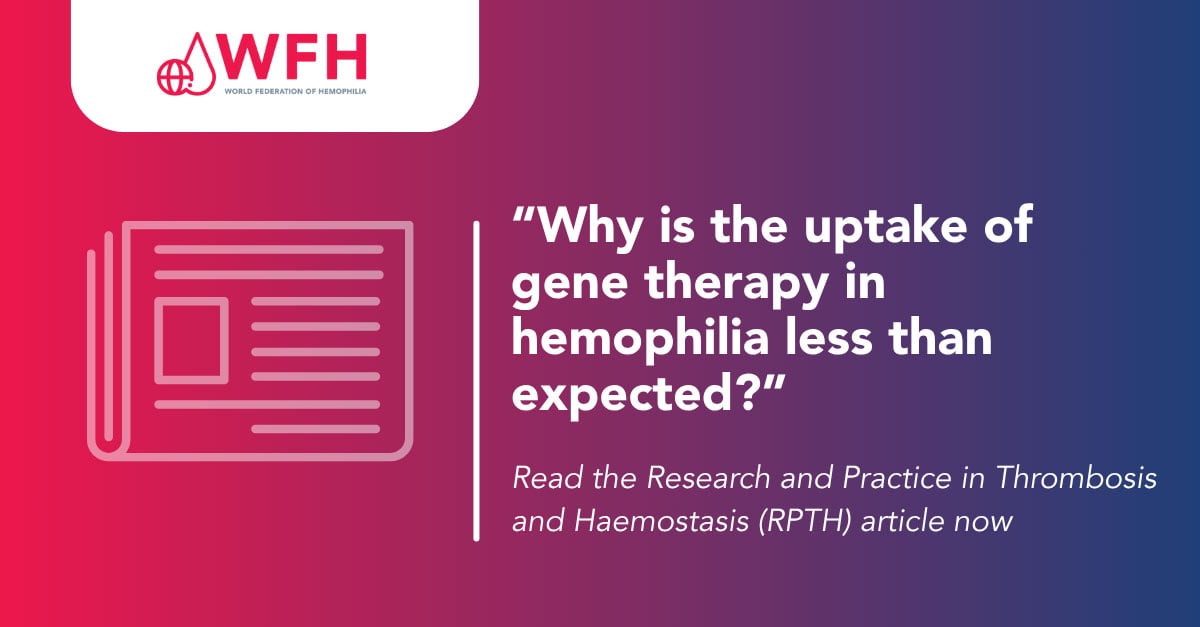A new article in Research and Practice in Thrombosis and Haemostasis (RPTH), “Why is the uptake of gene therapy in hemophilia less than expected?” highlights these issues and offers informed guidance. The article was written by Glenn Pierce, MD, PhD, Vice President, Medical, World Federation of Hemophilia (WFH); Mark Skinner, WFH USA board member; Brian O’Mahony, Chief Executive of the Irish Haemophilia Society; Dawn Rotellini, WFH Lay Member; and Radoslaw Kaczmarek, Chair of the Coagulation Product Safety, Supply and Access (CPSSA) Committee of the WFH.
The article covers recent decisions to pause or withdraw gene therapy programs for hemophilia. These actions have raised serious questions in the inherited bleeding disorders community. Some have suggested that there’s “limited interest” from patients and healthcare providers—but the community knows that’s not the full story.
People with hemophilia have long hoped for curative options. The real challenge lies in the need for therapies that deliver consistent, durable results with clear advantages over existing treatments—especially when current options already offer near-zero bleeds and improved quality of life.
We must continue pushing for innovation that is effective, transparent, and accessible to all—because the goal remains the same: a future with no bleeds and a hemophilia-free mind.
To read the full text of “Why is the uptake of gene therapy in hemophilia less than expected?” in RPTH, click here.












